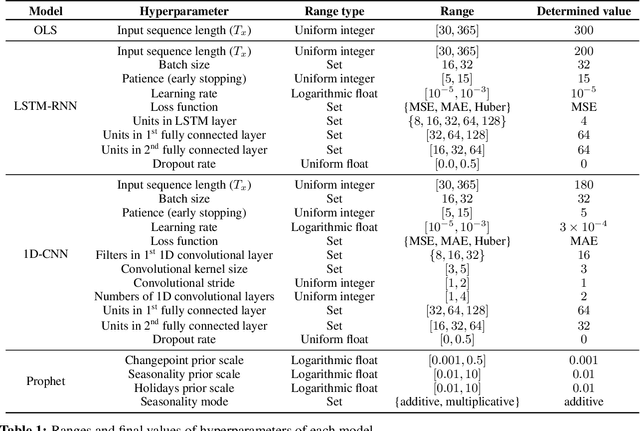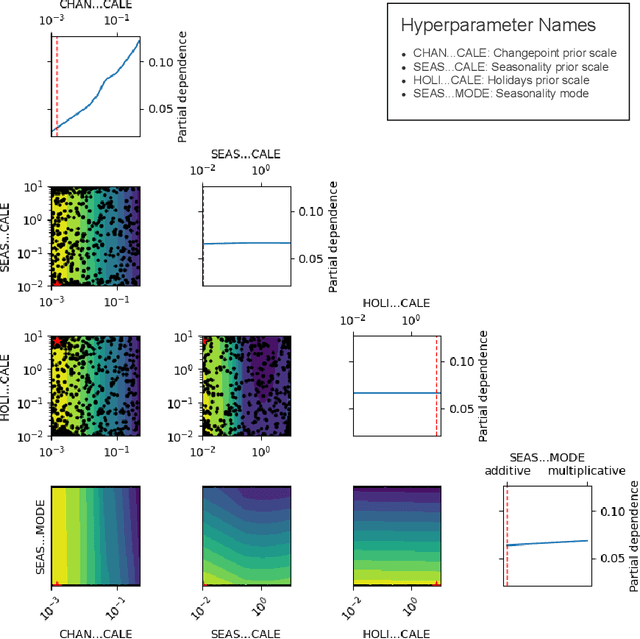Matthew A. S. Ross
Univariate Long-Term Municipal Water Demand Forecasting
May 18, 2021



Abstract:This study describes an investigation into the modelling of citywide water consumption in London, Canada. Multiple modelling techniques were evaluated for the task of univariate time series forecasting with water consumption, including linear regression, Facebook's Prophet method, recurrent neural networks, and convolutional neural networks. Prophet was identified as the model of choice, having achieved a mean absolute percentage error of 2.51%, averaged across a 5-fold cross validation. Prophet was also found to have other advantages deemed valuable to water demand management stakeholders, including inherent interpretability and graceful handling of missing data. The implementation for the methods described in this paper has been open sourced, as they may be adaptable by other municipalities.
Interpretable Machine Learning Approaches to Prediction of Chronic Homelessness
Sep 12, 2020Abstract:We introduce a machine learning approach to predict chronic homelessness from de-identified client shelter records drawn from a commonly used Canadian homelessness management information system. Using a 30-day time step, a dataset for 6521 individuals was generated. Our model, HIFIS-RNN-MLP, incorporates both static and dynamic features of a client's history to forecast chronic homelessness 6 months into the client's future. The training method was fine-tuned to achieve a high F1-score, giving a desired balance between high recall and precision. Mean recall and precision across 10-fold cross validation were 0.921 and 0.651 respectively. An interpretability method was applied to explain individual predictions and gain insight into the overall factors contributing to chronic homelessness among the population studied. The model achieves state-of-the-art performance and improved stakeholder trust of what is usually a "black box" neural network model through interpretable AI.
 Add to Chrome
Add to Chrome Add to Firefox
Add to Firefox Add to Edge
Add to Edge